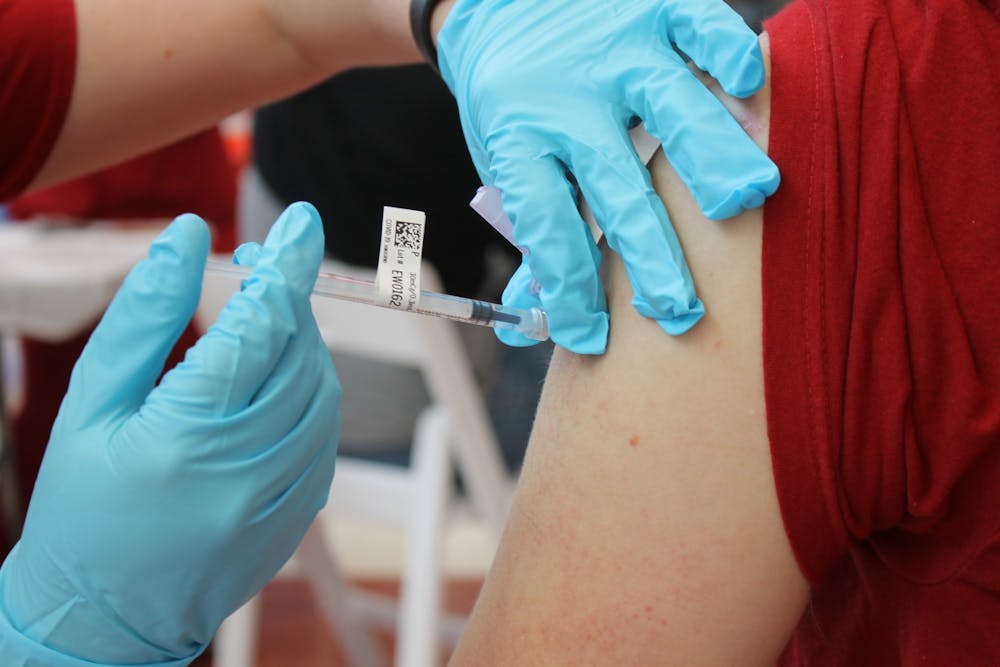Online misinformation about COVID-19 vaccines is associated with low vaccination rates in parts of the U.S., according to a paper published April 26 by IU’s Observatory on Social Media researchers and the Polytechnic University of Milan in Italy.
In 2021, the Observatory on Social Media team created CoVaxxy, a public dashboard which visualizes data on Twitter misinformation and vaccination rates. Tweets with links to low-credibility sources were classified as misinformation, and vaccine hesitancy was measured through Facebook surveys and state and county-level vaccination rates, according to News at IU.
According to the paper, survey responses from 22 million people determined that 40 to 47% of American adults are hesitant to get the COVID-19 vaccine.
Related: [IU named a top producer of Fulbright Award recipients for 7th consecutive year]
The paper also found vaccine hesitancy was correlated with high percentages of Republican voters and Black residents. Director of the Observatory on Social Media, Filippo Menczer, said historical disparities in the treatment of Black and white Americans in healthcare may have contributed to vaccine hesitancy, according to News at IU.
Along with these groups, the paper found women were also more likely to be hesitant about the vaccine.
The paper’s authors were Francesco Pierri, a postdoctoral researcher from the Polytechnic University of Milan, Matthew R. DeVerna, Kai-Cheng Yang and Alessandro Flammini from the Observatory on Social Media and Brea L. Perry from the College of Arts and Sciences.




